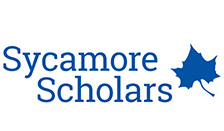Keywords
Policy and Procedure Development, Risk Management Mitigation, Collegiate and University Patient Population, Sport-related concussion, Return-to-Learn
Abstract
Sport-related concussion (SRC) has been at the forefront of the sports medicine literature and media; however only recently has return to learn (RTL) been recognized as an important piece of a concussion management plan (CMP). A student’s successful transition back to the classroom following SRC depends on the support, resources, and effective communication among the multidisciplinary team. This project focused on the assessment of current faculty knowledge, attitudes, and beliefs about concussion, the development of an RTL policy, and implementation of educational resources at a Division II institution. This project ran for 6 months, using 2 cycles of the plan, do, study, act (PDSA) methodology. An initial survey demonstrated faculty have a poor understanding of the behavioral and emotional signs and symptoms of concussion and that there was insufficient communication regarding student-athletes with concussion between faculty, staff, student-athlete, and administration. Initially, a RTL plan was developed and added to the existing concussion management plan (CMP), followed by the formation of a multidisciplinary concussion management plan (CMT). Finally, a one time in-person concussion education presentation was provided to faculty. Quantitative results from the post survey and semi-structured face-to-face interviews revealed improved communication among CMT members. One-hundred percent of faculty believed the brochure and presentation were helpful when managing a student with SRC. Faculty felt more knowledgeable and confident about academic adjustments and communicating with the CMT. Similarly, qualitative results from the in-person interviews with 8 faculty members revealed knowledge, confidence, and communication greatly improved; however, participants recommend additional education and a faculty resource page for concussion materials. This project demonstrated improvement in communication and efficiency in notifying faculty following injury minimizing time lag in academic adjustments. The RTL policy and faculty concussion education represents a simplistic, sustainable resource that could be replicated to other colleges.
Recommended Citation
Ranns, Dawn and McLeod, Tamara Valovich
(2019)
"Optimizing Return to Learn Following a Sport-Related Concussion: A Quality Improvement Project,"
Clinical Practice in Athletic Training: Vol. 2:
Iss.
3, Article 1.
Available at:
https://scholars.indianastate.edu/clinat/vol2/iss3/1

